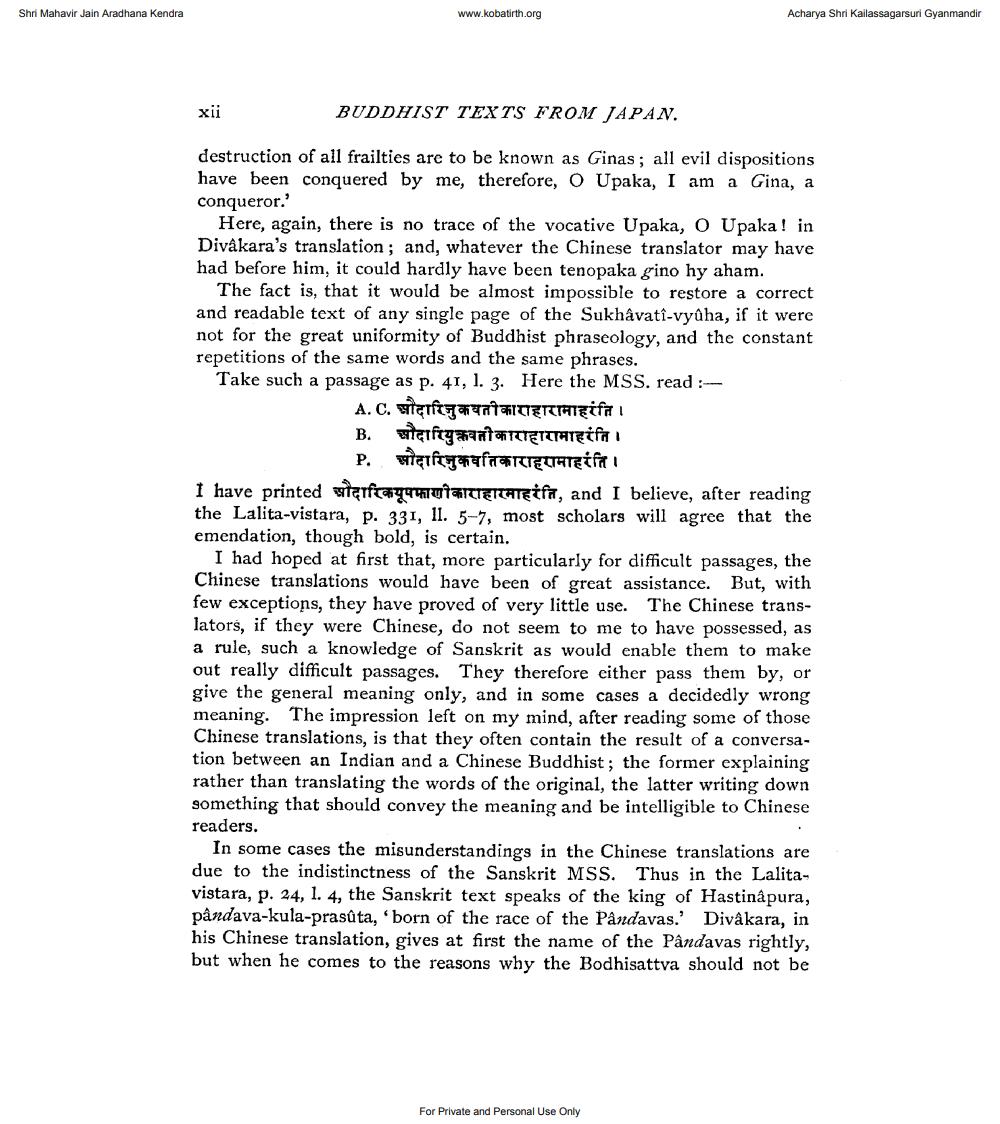________________
Shri Mahavir Jain Aradhana Kendra
www.kobatirth.org
Acharya Shri Kailassagarsuri Gyanmandir
xii
BUDDHIST TEXTS FROM JAPAN.
destruction of all frailties are to be known as Ginas; all evil dispositions have been conquered by me, therefore, O Upaka, I am a Gina, a conqueror.'
Here, again, there is no trace of the vocative Upaka, o Upaka! in Divakara's translation; and, whatever the Chinese translator may have had before him, it could hardly have been tenopaka gino hy aham.
The fact is, that it would be almost impossible to restore a correct and readable text of any single page of the Sukhavati-vyuha, if it were not for the great uniformity of Buddhist phraseology, and the constant repetitions of the same words and the same phrases. Take such a passage as p. 41, 1. 3. Here the MSS. read :
A.C. sterf #TET THE B. stelfrymat TETTTAIEIRA
P. więtrafaretraTEIPTI 1 have printed औदारिकयूपमाणीकाराहारमाहरंति, and I believe, after reading the Lalita-vistara, p. 331, 11. 5-7, most scholars will agree that the emendation, though bold, is certain.
I had hoped at first that, more particularly for difficult passages, the Chinese translations would have been of great assistance. But, with few exceptions, they have proved of very little use. The Chinese translators, if they were Chinese, do not seem to me to have possessed, as a rule, such a knowledge of Sanskrit as would enable them to make out really difficult passages. They therefore either pass them by, or give the general meaning only, and in some cases a decidedly wrong meaning. The impression left on my mind, after reading some of those Chinese translations, is that they often contain the result of a conversation between an Indian and a Chinese Buddhist, the former explaining rather than translating the words of the original, the latter writing down something that should convey the meaning and be intelligible to Chinese readers.
In some cases the misunderstandings in the Chinese translations are due to the indistinctness of the Sanskrit MSS. Thus in the Lalitavistara, p. 24, 1. 4, the Sanskrit text speaks of the king of Hastinapura, pandava-kula-prasůta, 'born of the race of the Pandavas.' Divakara, in his Chinese translation, gives at first the name of the Pandavas rightly, but when he comes to the reasons why the Bodhisattva should not be
For Private and Personal Use Only




